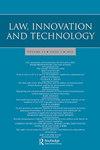The privatised city: technology and public-private partnerships in the smart city
Q1 Social Sciences
引用次数: 3
Abstract
ABSTRACT The ‘smart city’ movement asks new questions about the role of private actors in urban governance. Smart technology providers, because of their unique position, influence policymaking through their products and services. Yet, the effect of this role on public values remains unaddressed. This article considers how the use of public-private partnerships (PPPs) in smart city development challenges public values, particularly accountability and transparency. It shows how both PPPs and smart cities frame for-profit firms as central actors in creating efficient and innovative public services and infrastructure. The risks privatisation poses for public values have to be reassessed, in light of the issue of vendor lock-in and the value-embedding capacity of technology. Furthermore, this article suggests that to mitigate such risks, data protection legislation is insufficient: the wider notion of publicisation, namely the extension of public norms to private actors acting for public purposes, needs to be re-examined in the context of the smart city. Therefore, this article contributes to the literature with a novel discussion of the possibilities and limits of using smart city PPPs as tools to safeguard public values.私有化的城市:智慧城市中的技术和公私合作关系
摘要“智慧城市”运动对私人行为者在城市治理中的作用提出了新的问题。智能技术提供商由于其独特的地位,通过其产品和服务影响决策。然而,这一角色对公众价值观的影响仍未得到解决。本文探讨了在智慧城市发展中使用公私伙伴关系如何挑战公共价值观,特别是问责制和透明度。它展示了PPP和智慧城市如何将营利性公司视为创造高效创新公共服务和基础设施的核心参与者。鉴于供应商锁定问题和技术的价值嵌入能力,必须重新评估私有化对公共价值构成的风险。此外,这篇文章表明,要减轻这种风险,数据保护立法是不够的:更广泛的宣传概念,即将公共规范扩展到为公共目的行事的私人行为者,需要在智能城市的背景下重新审视。因此,本文对使用智能城市PPP作为维护公共价值的工具的可能性和局限性进行了新颖的讨论,为文献做出了贡献。
本文章由计算机程序翻译,如有差异,请以英文原文为准。
求助全文
约1分钟内获得全文
求助全文
来源期刊

Law, Innovation and Technology
Social Sciences-Law
CiteScore
4.50
自引率
0.00%
发文量
18
期刊介绍:
Stem cell research, cloning, GMOs ... How do regulations affect such emerging technologies? What impact do new technologies have on law? And can we rely on technology itself as a regulatory tool? The meeting of law and technology is rapidly becoming an increasingly significant (and controversial) topic. Law, Innovation and Technology is, however, the only journal to engage fully with it, setting an innovative and distinctive agenda for lawyers, ethicists and policy makers. Spanning ICTs, biotechnologies, nanotechnologies, neurotechnologies, robotics and AI, it offers a unique forum for the highest level of reflection on this essential area.
 求助内容:
求助内容: 应助结果提醒方式:
应助结果提醒方式:


